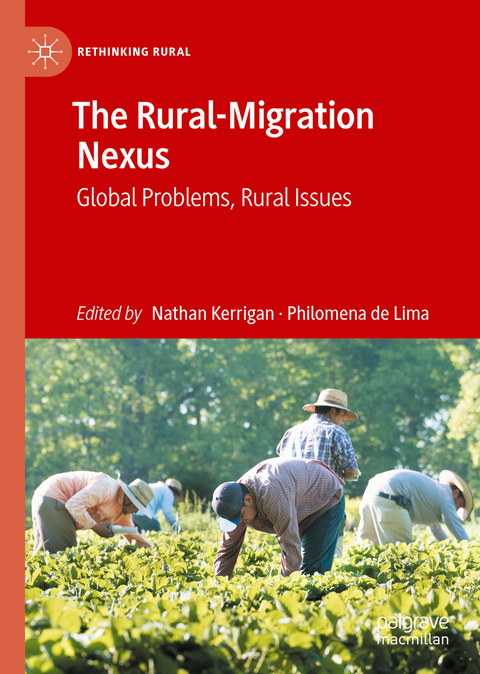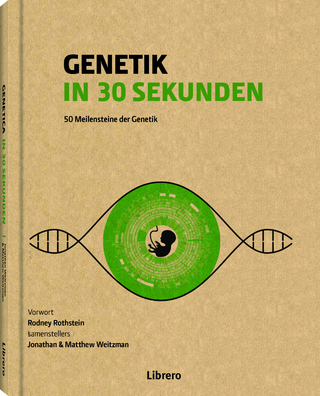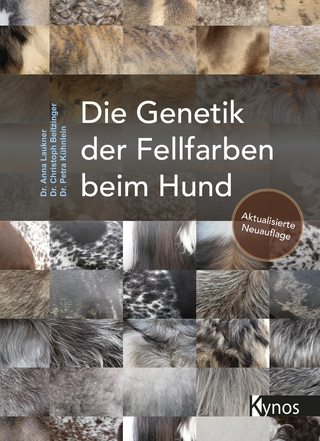
The Rural-Migration Nexus
Springer International Publishing (Verlag)
978-3-031-18041-5 (ISBN)
This edited collection aims to examine the global-rural relationship of migration that shapes rural places. It does this by acknowledging that to understand the impact of the international migration-global nexus, it is essential to explore how it is experienced at a local level - in the context of this book, rural regions. Focusing on agribusiness and rural development, as well as the othering of international migrants and the shifting boundaries of belonging in rural spaces, the chapters in this book examine how globalisation, with migration being a constitutive feature, influences different rural contexts in the 'Global North' and the impact this has on migrant populations. Chapters demonstrate the harsh lived experiences/realities characterised by mental health issues and emotional labour for migrants, occupational health and safety issues in the workplace and experiences of exclusion and racism from 'host' communities. These chapters taken together identify a rural-migration nexus where the relationship between international migration and localised rural spaces are mutually constitutive.
lt;p>Nathan Kerrigan is Lecturer in Sociology at Birmingham City University, UK. Nathan's research interests and publications centre around themes of community, space, and place. He is especially interested in the way these different thematic areas impact and influence constructions of rurality as well the tensions and conflicts they produce in rural areas.
Philomena de Lima is a professor of Applied Sociology and Rural Studies at UHI Inverness, Scotland and was the Director for Centre for Remote and Rural Studies until 2019. She is the co- editor for 'Rethinking Rural' Palgrave -MacMillan book series and has recently been appointed as a member of the Scottish Government's Migration and Population Expert Advisory Group.
Chapter One: Introduction.- Chapter Two: Should I Stay or Should I Go? Developing migrant-led understandings of welcoming rural communities.- Chapter Three: On the hypermobility of agricultural workers in Europe: Life courses between rural Moldova and Switzerland/the EU.- Chapter Four: "Caging all tigers": Pathways to occupational health and safety for transnational agricultural workers in Canada.- Chapter Five: Living better but separated: the emotional impacts of the Canadian Seasonal Agricultural Workers Programme on transmigrant workers.- Chapter Six: Migrants, Refugees and Settlement Camps in the Rural and Urban Fringes of Serbia: Cultural Repertoires, Changing Understandings and Imaginings of the Other.- Chapter Seven: Being Global and Being Regional: Refugee entrepreneurship in regional Australia.- Chapter Eight: Conclusion.
| Erscheinungsdatum | 14.03.2023 |
|---|---|
| Reihe/Serie | Rethinking Rural |
| Zusatzinfo | XVII, 227 p. 14 illus. |
| Verlagsort | Cham |
| Sprache | englisch |
| Maße | 148 x 210 mm |
| Gewicht | 452 g |
| Themenwelt | Naturwissenschaften ► Biologie ► Genetik / Molekularbiologie |
| Sozialwissenschaften ► Soziologie ► Spezielle Soziologien | |
| Technik ► Umwelttechnik / Biotechnologie | |
| Schlagworte | Agribusiness • Communities • Racism • rural sociology • Rural Studies • Social Exclusion |
| ISBN-10 | 3-031-18041-0 / 3031180410 |
| ISBN-13 | 978-3-031-18041-5 / 9783031180415 |
| Zustand | Neuware |
| Informationen gemäß Produktsicherheitsverordnung (GPSR) | |
| Haben Sie eine Frage zum Produkt? |
aus dem Bereich


